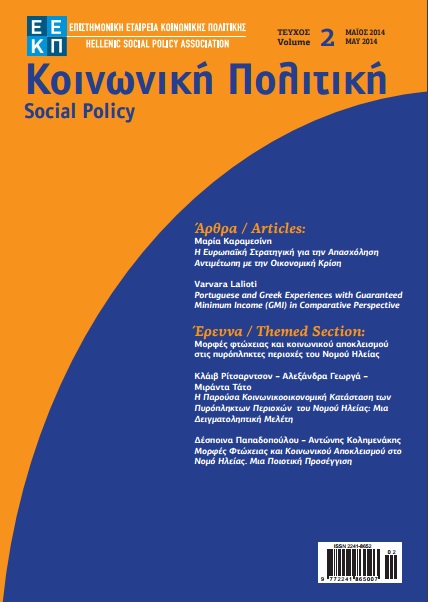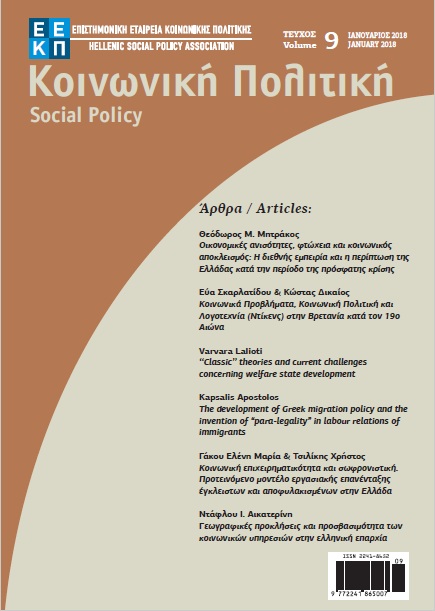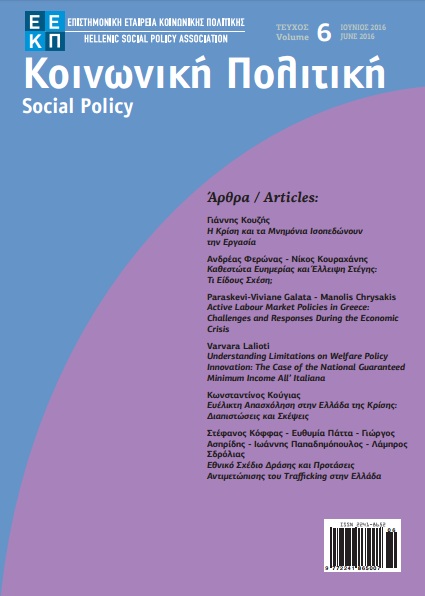Portuguese and Greek Experiences with Guaranteed Minimum Income (GMI) in Comparative Perspective
Abstract
Portugal and Greece have divergent histories with regard to Guaranteed Minimum Income (GMI), arguably the principal difference in the two countries’ evolutions of social assistance in recent decades. Neither had a GMI when EEC common criteria on sufficient resources and social assistance were issued in 1992. Portugal introduced a pilot programme in 1996 that went operational in 1997. Greece is among only a few European countries never to experiment with GMI. Only recently (in 2012) was a decision reached to launch a pilot GMI scheme, with implementation still forthcoming.
An account for the different Portuguese and Greek GMI experiences emphasizes the importance of actors such as political parties and trade unions. This actor-centred approach argues that the Portuguese GMI success is attributable to a coalition among key domestic policy actors, while ambivalent and fragmented attitudes among Greek policy actors hindered institution. The recent decision for a GMI pilot in Greece should be viewed as a product of the severe economic crisis and state debt obligations that leave little space for ambivalence.
Article Details
- Come citare
-
Lalioti, V. (2017). Portuguese and Greek Experiences with Guaranteed Minimum Income (GMI) in Comparative Perspective. Κοινωνική Πολιτική, 2, 27–45. https://doi.org/10.12681/sp.10553
- Fascicolo
- V. 2 (2014)
- Sezione
- Άρθρα

TQuesto lavoro è fornito con la licenza Creative Commons Attribuzione 4.0 Internazionale.
Οι συγγραφείς των άρθρων που δημοσιεύονται στο περιοδικό διατηρούν τα δικαιώματα πνευματικής ιδιοκτησίας επί των άρθρων τους, δίνοντας στο περιοδικό το δικαίωμα της πρώτης δημοσίευσης. Άρθρα που δημοσιεύονται στο περιοδικό διατίθενται με άδεια Creative Commons 4.0 και σύμφωνα με την άδεια μπορούν να χρησιμοποιούνται ελεύθερα, με αναφορά στο/στη συγγραφέα και στην πρώτη δημοσίευση για μη κερδοσκοπικούς σκοπούς και με δικαίωμα τροποποίησης μόνον με παρόμοια διανομή (αν αναμείξετε, τροποποιήσετε, ή δημιουργήσετε πάνω στο υλικό, πρέπει να διανείμετε τις δικές σας συνεισφορές υπό την ίδια άδεια όπως και το πρωτότυπο).





